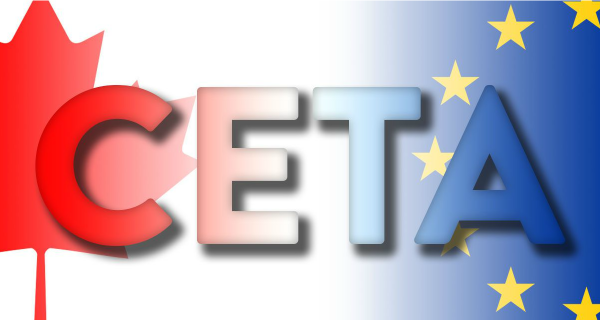
Many lights and some shadow is what comes from the details of CETA (Comprehensive Economic and Trade Agreement), the trade agreement between EU and Canada recently approved by the European Parliament. Canadian food companies will continue to use terms like “Parmesan” (an Italian sounding word used for fake Italian cheese) and to produce and sell Gorgonzola, Asiago and Fontina. On all their labels, however, shall be inserted the “Made in Canada” wording. Moreover, it will be forbidden to associate these products with Italian sounding elements such as tricolor flag and pictures of Italian towns or monuments, which are misleading and deceptive for consumers. At the same time, Prosciutto di Parma – left out until yesterday – shall be exported to Canada. Following a Coldiretti survey, the EU products involved in the CETA are 171, 41 of which come from Italy. According to the agreement, Prosciutto di Parma, Prosciutto San Daniele, Prosciutto Toscano and Prosciutto di Modena shall be exported to Canada using their own brand name but they will have to coexist with already registered Canadian trade marks. Until yesterday, Italian Prosciutto di Parma could be exported only showing “Prosciutto originale” brand.
GREEN LIGHT FOR PARMIGIANO-REGGIANO – The Consortium of Parmigiano-Reggiano cheese expresses its satisfaction at the approval of the agreement: Good news for our associate producers is twofold – says the Consortium President Alessandro Bezzi – namely the doubling of the amount of EU cheeses to be exported to Canada and the establishment of new checks on brands and trademarks against imitations and counterfeiting. Thanks to the CETA it will be easier to seize the business opportunities we created by means of extensive communication campaigns and commercial agreements with the biggest Canadian supply chains. Without forgetting that Parmigiano-Reggiano’s export to Canada keeps on growing (more than +12% in 2016).
